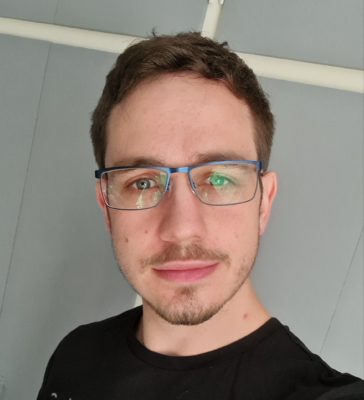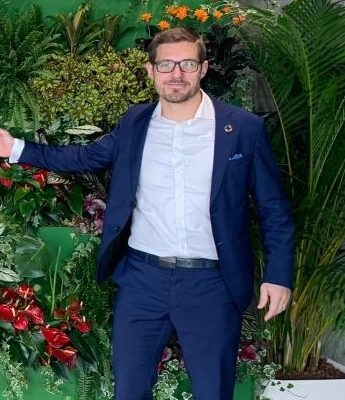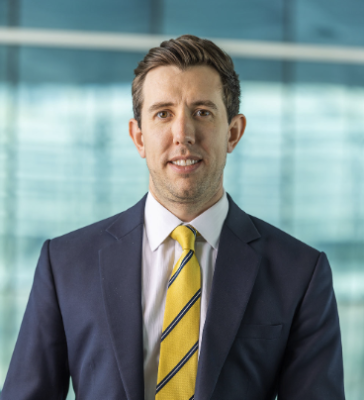
Sean Llanelly
Current Employer/Organisation Name
eCube Solutions
What have you been doing since leaving Exeter, and what are you doing now?
Since graduating I took a job initially with DVLA as it was local while I searched for a career path related to my degree. The first one I found was as a Microbiologist working for Welsh Water. Here I learnt everything I feasibly could about water microbiology and after 4 years realised there was little more I could learn or progress to in the role. Fortunately I worked for a company who invested heavily in their employees if you are willing to work, and they funded for me to complete an MSc in Statistics and Operational Research, then asked me to help support the creation of a new Data Governance team within the business, at which I was employed as a Technical Business Analyst. My role was focussed around improving the way the business captured, stored and analysed data to make improvements to all aspects of the business, which led me to start looking at non-data related improvements such as processes, behavioural and cultural change. Having noted my drive to expand my improvement scope, I was asked by the business to be part of and develop a new Continuous Improvement team. Within this role I rapidly achieved my continuous improvement (CI) qualifications (Lean Black Belt) as a Continuous Improvement Specialist working with a wide variety of teams, delivering holistic strategic projects, whilst also delivering training and coaching within the business to embed CI as part of the day to day culture. Having worked for a utility company for 7 years, been asked to create and develop two teams which were now fully embedded into the business, I decided I wanted to find a new challenge. I took an opportunity in the aerospace sector as the Head of Business Improvement, where I am now able to develop and deploy my own improvement strategy and training for my business.
Why did you choose this career? And what do you enjoy most about your work?
Continuous improvement is one of the more unique roles by which at some point, depending on the size and scale of the business, you will experience and understand what role every team in the business performs, from front line teams to directors and board level. By its very nature all aspects of a business will always be looking to improve their processes, data requirements, technology, behaviours, culture etc. and it is my job to not only understand their strategic value to the business, but to understand what drives the team, their passions and pride in what they do, in order to influence and inspire them to engage in and drive change as part of their day to day working lives. It is the sheer variety of the business that I get to experience, and the interactions to inspire all levels that I enjoy most about my role.
Please tell us if you were a member of any societies, groups or sports clubs?
I was the treasurer of WildSoc (animal behaviour society) and a member of BioSoc. I also played rugby whilst at university.
What did you enjoy most about your programme and what was the biggest highlight?
My programme was one of the most varied selection of modules that I could have asked for, particularly as I had a keen interest in genetics and forensics, but also had a passion for conservation and evolution. I had never seen such a variety of modules which allowed me to pick and choose so many subjects to fill many of my interests. My biggest highlight however was being able to spend 2.5 months in Australia studying the animals in the outback as part of my final year project. Genuinely a once in a lifetime experience and I’ll never forget it.
What did you enjoy most about studying here?
Exeter is a very beautiful and friendly city. I loved that you could walk everywhere (providing you don’t mind a hill), and there was a wonderful mix of students from all backgrounds and cultures. As far as studying goes, I have to give it to the sheer amount of choice I had in my modules. I loved every subject I took, and every lecture was given by professors with a genuine passion for their topic which made learning and interacting with them infinitely more enjoyable.
Why did you choose to study at Exeter?
I was fortunate enough to get accepted into several top universities, however when I came to Exeter, there was something about the talks given by the professors which lit a spark in me. Where in other universities, the talks about the course were interesting, every professor I spoke to in Exeter had such a passion and love for their work that they were excited to tell me about every detail, even down to the anomalies in the statistics! It was this drive and passion that I found infectious to the extent I felt I only had one option after talking to everyone there.
What skills and experiences have been most useful for your career?
Comfort zones will kill you. Exeter, and university in general, is a wonderful place which lets you reinvent yourself, try new experiences and find who and what you want to be as life goes forward. Although I didn’t do it as much as I should have, I tried to take every experience that came my way, becoming treasurer of a society, joining clubs, planning away events, helping with charities, going to Australia for over two months! As part of my career, particularly early on as a microbiologist, I got comfortable and stopped this drive to keep looking for new experiences. Looking back at what I did in university to learn so much about myself and gain new skills, it was then that I decided to go back and do a masters in something completely unrelated, which as scary and daunting as it was, it was one of the most rewarding experiences I had in my working life. From there I have strived to continue to push myself out my comfort zone and my career has rocketed since finding new and different roles that I never dreamed existed, but I thoroughly enjoy.
What advice would you give to a current student who wishes to pursue your career?
Talk to people. So many issues in businesses are largely down to a huge barrier in communication and an acceptance that things are just the way they are. You’ll find this in your personal life too, that without open and honest communication, it is almost impossible to improve any aspect of your life. For my role especially, question everything. If you have a concern or an idea about something, tell someone! Obviously the more data and evidence you have the better, but no harm ever came out of an open and honest conversation. My role is to work with every person in the business. They are the experts in what they do, not me, so without open and honest communication I would never be able to help them improve their processes or behaviours. I honestly believe there is nothing more valuable in this world than talking to people, learning from their experiences and letting them learn from yours, because as a leader you have to inspire change, not direct it. If you can use their experiences and opinions to show them why a change is needed rather than directing how something needs to change, you’ll find that almost everyone is open to change.
What are your plans for the future?
My current goals are to optimise and automate every data driven process in my current business across the two existing sites in Wales and Spain. I’ll then optimise our processes to become the best business in the world for our chosen aviation services. Given it is a relatively small business, I aim to upskill all employees on how to identify wastes in their processes and give them the skills to properly use continuous improvement tools to identify and implement improvements themselves. I then aim to support the opening of a third site in America, and providing I am able to instil all learnings as best practice from the start at the new site, I will likely be looking for a new challenge in a larger company.

